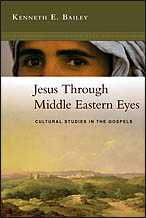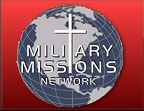Recently a soldier asked me, “What are the regulations for sharing the gospel with Iraqi interpreters and counterparts in the Iraqi security forces?” He wanted to be able to answer questions about Jesus, but he also didn’t want to break any regulations or cause any problems for his small team of advisors.
Here is my response.
General Order #1 says not to proselytize. It means service personnel cannot offer inducements or enticements, and cannot use positions or authority to propagate their personal faith.
Webster’ definition of proselytize is:
1. : to induce someone to convert to one’s faith
2. : to recruit someone to join one’s party, institution, or cause
3. : to recruit or convert, especially to a new faith, institution, or cause
Wikipedia says, “Proselytizing is the act of attempting to convert people to another opinion and, particularly, another religion.”
Proselytize is grammatically transitive. It has an object or an implied object. The object is the target that the subject wants to change, and the subject is the person, who is trying to make a convert.
Military legal counsel has concluded that proselytizing is not constitutionally protected as a first amendment right to free exercise of religion. Proselytizing in Afghanistan and Iraq would damage national interests and endanger many lives.
However, religious speech is constitutionally protected speech! Courts consistently rule that service personnel may talk about religion when the audience wants to hear it. Talking informatively about personal faith can be different than trying to make converts. Religious speech breaks regulations when the audience does not want to hear it, or when the speaker does not know whether the audience wants to hear it or not.
Giving someone unsolicited religious material can also be proselytism. In nearly all cultures it’s bad form to refuse gifts. Giving religious material, or even asking people if they want to receive it, can appear to be pressuring and can be called proselytizing.
However, when the listener requests the religious speech, it is not proselytism. Under such conditions, the speaker is the passive responder to the listener, who has actively solicited the testimony or the religious materials.
So the short answer to the question is, “Yes, service men and women can talk freely about their faith with interpreters and counterparts as long as they offer solicited information, and as long as they do not pressure or induce others to solicit it.”

 The New Testament in all three Kurdish dialects is on line at
The New Testament in all three Kurdish dialects is on line at  Jesus lived and taught where most military men and women are serving. Kenneth Bailey’s book, Jesus Through Middle Eastern Eyes: Cultural Studies in the Gospels, reveals what Jesus’ life and teaching meant to his Middle Eastern audience. His impact on them was often quite different than his impact on Europeans and Americans today.
Jesus lived and taught where most military men and women are serving. Kenneth Bailey’s book, Jesus Through Middle Eastern Eyes: Cultural Studies in the Gospels, reveals what Jesus’ life and teaching meant to his Middle Eastern audience. His impact on them was often quite different than his impact on Europeans and Americans today. Brother Thomas, who founded
Brother Thomas, who founded 







 http://www.faithandwar.org
http://www.faithandwar.org Mark Durie's Blog
Mark Durie's Blog Military Missions Network
Military Missions Network The Christian Fighter Pilot
The Christian Fighter Pilot The Navy Christian
The Navy Christian